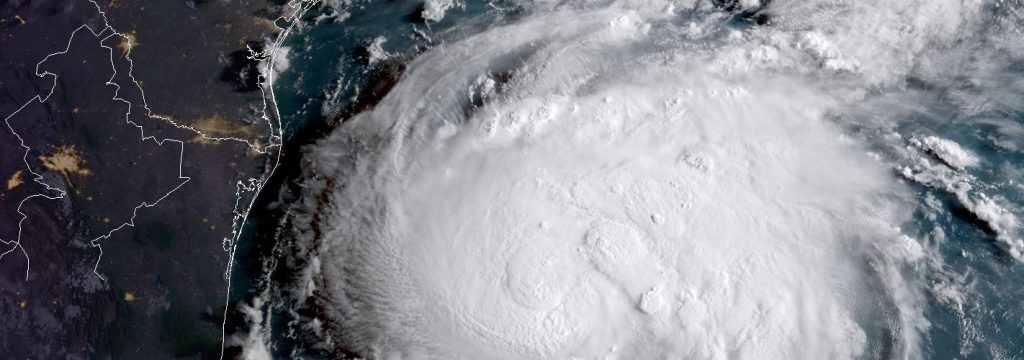→ Liveblog updates below
Rainfall in Houston finally started to slow down on Thursday, as Tropical Storm Harvey moved northeast towards Louisiana and Kentucky. The storm left significant portions of Texas under water, after bringing rainfall of up to over 51 inches, setting a new record rainfall for the continental United States.
Police deputies in Galveston, Texas confirmed two fatalities on Sunday in Dickinson, a city 30 miles southeast of Houston, after Tropical Storm Harvey continues to leave feet of rain in its path. A woman drowned on Saturday after driving her car in high water in Houston. Another person died in Rockport when their house caught on fire as Harvey made landfall nearby. Another twelve were injured in Rockport.
Harvey first made landfall at San Jose Island in Texas at 10 p.m. CT on Friday, August 25, near the city of Rockport, as a category 4 hurricane with sustained winds at 130 miles per hour.
“We’re going to be there for years,” in response to a question from CNN’s Jake Tapper asking if the agency was prepared to be in Houston for weeks or months.
FEMA Director Brock Long
Harvey has since weakened to a tropical storm as it moved onshore, but ‘catastrophic’ flooding has continued around the Houston and southeastern portion of Texas.
The National Hurricane Center (NHC) on Sunday issued a forecast warning that isolated reports of 50 inches of rain could be seen around the Houston/Galveston area.
Update to the rainfall record: 51.88" has been reported at Cedar Bayou and FM-1942 as of 3:40 PM CDT today #houwx #glswx #bcswx #txwx pic.twitter.com/LJZsLJSqVm
— NWS Houston (@NWSHouston) August 29, 2017
Most recent summary of observed rainfall totals for #Harvey can be found here: https://t.co/W5oMMZexWK @NWSWPC pic.twitter.com/D7JHBPVvPZ
— NHC Atlantic Ops (@NHC_Atlantic) August 29, 2017
Local and federal agencies, along with citizen volunteers, have been performing water rescues and responding to emergency calls from Houston-area residents trapped in cars and houses.
"If you're still in your home, we're coming." – PA @MayorFreeman on Facebook live right now. #SETXNews #Harvey
— Liz Teitz (@LizTeitz) August 30, 2017
Houston SWAT officer carries mother and her 13-month-old son to safety amid rising floodwaters from #Harvey https://t.co/eI8evMlYpg pic.twitter.com/FhonxXWRAQ
— ABC News Politics (@ABCPolitics) August 27, 2017
Anyone with a boat who can volunteer to help please call 713-881-3100 #HurricaneHarvey
— Houston Police (@houstonpolice) August 27, 2017
Houston Mayor Sylvester Turner said on Monday evening the police department had rescued 3,052 people.
Houston’s George R. Brown Convention Center is open as a shelter, with approximately 1,000 cots for evacuees.
LATEST: 30,000 people housed in 230 shelters in Texas after Hurricane #Harvey flooding – FEMA director https://t.co/gTTannhLJR pic.twitter.com/2XmMspo4dp
— Reuters U.S. News (@ReutersUS) August 30, 2017
The storm is forecast to meander on or just off shore towards the Texas and Louisiana border. During this time, flooding rains will continue to bring devastation to communities.
Texas Governor Greg Abbott announced on Monday the entire Texas National Guard was being deployed to assist in rescue and relief efforts, bringing the number of service members from 3,000 to 12,000.
As of Thursday morning, Vice President Mike Pence told KHOU that 22,000 citizens have contacted FEMA to begin the process of receiving assistance. Pence believes that 500,000 people will be eligible for federal financial assistance.
The Entire @TexasGuard has been activated in response to Hurricane #Harvey devastation. https://t.co/RJ8N9xCHvu pic.twitter.com/URXV0FixZG
— Gov. Greg Abbott (@GovAbbott) August 28, 2017
Rainfall fills up Addicks Reservoir, causing additional flooding
The water level within Addicks Reservoir, built and designed to help minimize flooding in the downstream Buffalo Bayou, exceeded the 108-foot spillway Tuesday morning. The reservoir has a capacity of 201,000 acre-feet. Water level in the dam finally crested Tuesday evening approximately 5 p.m. at 108.85 feet.
The Army Corps of Engineers began controlled water releases from the reservoir on Monday the 28th to attempt to manage the downstream effects of the outflow. They expect to continue increasing release rates at both Addicks and Barker reservoirs to 4,000 cubic feet of water per second at each.
Controlled releases at both dams was increased to 8,000 cubic feet per second each Tuesday evening; the Corps says the releases will help manage flooding and water levels both upstream and downstream of the dams.
As of 5 p.m. today, the pool elevation at Addicks Reservoir reached approximately 105 feet, which is up from about 103 feet from a previous measurement; while the pool elevation at Barker Reservoir is approximately 99 feet, which is up a foot from its previous reading. These are both record highs; above the April, 2016 pool levels which reached 102.7 feet and 95.24 feet, respectively.
U.S. Army Corps of Engineers, Monday, August 28th
https://www.grasswirenews.com/2017/08/wind-rain-harvey-move-towards-louisiana/
Explosion reported at Houston area chemical plant hit by hurricane flooding

